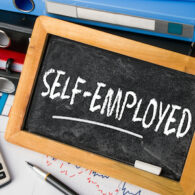Being self-employed brings its own challenges when you’re applying for a mortgage. Mortgage lenders underwrite their loans based on standard guidelines that have been established by Fannie Mae, the FHA, or the VA.
Self-employed borrowers are often considered riskier than other types of mortgage loan applicants. Consequently, they frequently receive closer scrutiny than do salaried borrowers. For example:
- Self employed borrowers must demonstrate two or more years of self employment, while salaried borrowers can often get mortgages while they are transitioning to a new job.
- The electronic underwriting systems used for Fannie Mae and Freddie Mac programs require higher credit scores for self employed borrowers.
- The reserve requirements for self employed borrowers are more strictly interpreted.Self employed borrowers are qualified on their average income over the last two to three years, whereas salaried borrowers are qualified on their current income (which is usually higher than an average).
So often, the financial records of the self-employed borrower don’t reflect their true business success or their ability to repay a mortgage loan. We have number of underwriting techniques and loan programs designed for self employed borrowers:
If you’re self employed and are concerned about your ability to qualify for a mortgage, don’t wait until after you’ve fallen in love with a home – get pre-approved now. It starts with a 10 minute phone conversation and it could save you thousands of dollars.
If you’re self-employed and would like to qualify for a mortgage, call Charley Farley at (603) 471-9300 or e-mail.
Watch this three-minute video with Charley’s top tips for qualifying for a mortgage when you’re self-employed.

